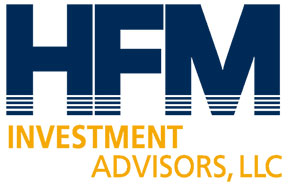
Unlock the True Potential of Your 401(k) Savings
Jason Gabrieli and Tyler Reedman, both CERTIFIED FINANCIAL PLANNERS at HFM Investment Advisors, dispel common misconceptions about 401(k) contributions. They dissect the difference between matching the employer’s contribution and maxing out a 401(k). They discuss contribution limits and strategies to increase contributions incrementally so you can optimize your savings. This episode is a must-listen for anyone looking to take full advantage of their 401(k) potential.
Tune into this episode to also learn:
- The real meaning of ‘maxing out’ your 401(k) and common misconceptions.
- How automatic escalation can effortlessly boost your 401(k) savings.
- The impact of choosing between Roth and pre-tax contributions on your take-home pay.
What we discussed
- [00:01:22] Misconceptions about maxing out 401(k) contributions and the actual limits.
- [00:06:09] Insights from Vanguard’s ‘How America Saves’ report and average saving rates.
- [00:08:41] The concept of reverse budgeting and its impact on savings habits.
- [00:11:00] The benefits of automatic escalation in 401(k) contributions.
- [00:13:32] The importance of focusing on contribution rates over market performance.
3 Things To Remember
- Maxing out your 401(k) involves understanding and utilizing the actual dollar limits, not just the employer match.
- Incremental increases in contributions can significantly impact your retirement savings without overwhelming your current finances.
- Understanding the nuances between Roth and pre-tax contributions can optimize your long-term savings and tax benefits.
Useful Links
Connect with Jason Gabrieli: [email protected] | LinkedIn
Like what you’ve heard…
Learn more about HFM HERE
Schedule time to speak with us HERE
Check out our Financial Wellness Program – HFM Ignite

102 WEST HIGH STREET, SUITE 200
GLASSBORO, NJ 08028
HFM Investment Advisors, LLC is a registered investment adviser. All statements and opinions expressed are based upon information considered reliable although it should not be relied upon as such. Any statements or opinions are subject to change without notice. Information presented is for educational purposes only and does not intend to make an offer or solicitation for the sale or purchase of any specific securities, investments, or investment strategies. All investments involve risk and are not guaranteed. Information expressed does not take into account your specific situation or objectives and is not intended as a recommendation appropriate for any individual. Listeners are encouraged to seek advice from a qualified tax, legal, or investment advisor to determine whether any information presented may be suitable for their specific situation. Past performance is not indicative of future performance.
